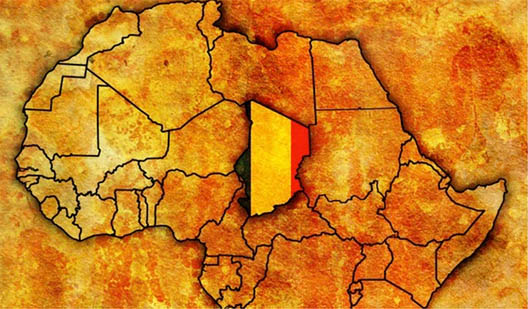 Bottom Line Up Front
Bottom Line Up Front
- President Idriss Déby Itno has deployed Chadian armed forces into the violent political maelstroms unfolding in Mali and the Central African Republic (CAR), earning gratitude from Western donor powers and possibly transforming Chad—long considered a diplomatic backwater—into a regional powerbroker
- But Déby’s intervention in CAR has been controversial. International NGOs and CAR citizens have accused Déby of picking sides in the country’s affairs, and the UN and other international organizations have highlighted Chad’s own shaky internal stability and spotty human rights record
- Diplomatic pressure on Chad is becoming so intense that Déby recently admitted the need for Chadian forces to bow out to a neutral United Nations peacekeeping force
From problem child to peacekeeper
In 2008, as the conflict in Darfur blazed on the far side of Chad’s border, the African Union and the United Nations were forced to deploy peacekeepers to help stabilize Chad after rebels backed by Sudan stormed across the country and the presidential palace and other public buildings in the dusty Chadian capital of N’Djamena. Déby’s administration barely survived, but by 2010, having patched up its differences with Khartoum, was confident enough to antagonize Chad’s Western donors by demanding the withdrawal of international forces. Since then, Déby, who has ruled since 1990, has consolidated his grip on power, but criticism of his administration’s rights and governance record has intensified. When Mali imploded in 2013, Déby saw an opportunity to enhance Chad’s international standing by committing 2000 Chadian troops to support the African-led International Support Mission to Mali (AFISMA). Chad was the largest contributor to AFISMA from outside the Economic Community of West African States (ECOWAS) sub-regional grouping, and Chadian forces took the bulk of the casualties in the conflict. Today, Chadian forces are the largest contingent in the African-led International Support Mission to the Central African Republic (MISCA). Déby has also started to spearhead non-military regional cooperation efforts, hosting both a summit on sustainable development and a Community of Sahel-Saharan States (CEN-SAD) summit in 2013. Indeed, Déby is proving to be one of the few African leaders capable of responding to the widespread clamor for African solutions to African problems, embarrassing larger and wealthier African nations that have yet to match Chad’s commitments.
View from N’Djamena
Oil revenues have provided Chad with a steady seven percent GDP growth rate since 2004, and allowed President Déby to transform his country’s military into a powerful 30,000-man fighting force equipped with Sukhoi-25 fighter plans and MI-24 attack helicopters. But the regime’s diversion of oil revenues for defense at the expense of development has appalled many international critics. Furthermore, Déby has inarguably used Chad’s oil wealth to entrench his own political power.
CAR Quagmire
For more than a decade, political power in CAR has flowed from N’Djamena. CAR president François Bozizé’s ascension to power in 2001 was facilitated by Chadian military support, and his fall to the Séléka rebels in 2013 was (allegedly) made possible by Déby’s ill-timed withdrawal of a vital and longstanding contingent of pro-government Chadian troops from CAR. Déby eventually redeployed his troops to help Bozizé, but critics have accused N’Djamena of standing by during the Séléka sack of Bangui.
But Chad’s deployment of peacekeepers to the 5,500-man MISCA peacekeeping force has proven controversial. Testimony collected by the UN suggests that Chadian forces escorted Séléka rebels to areas where they proceeded to commit atrocities. Human Rights Watch Emergency Director Peter Bouckaer, frustrated by evidence that Chad aided Séléka rebels, called for the suspension of Chadian peacekeepers in CAR. (To be fair, French troops have been similarly accused of permitting atrocities against CAR Muslims, and of political meddling.) Perceptions that Chadian troops have enabled Séléka atrocities against civilians have aggravated long-standing hostilities, leading to mass anti-Chad protests in Bangui in December.
Recently, Déby has relented in his opposition to an expanded and professional UN peacekeeping force, admitting, “We need more men, more assets. Only the U.N. can provide this.” This may be a response to the deteriorating humanitarian situation on the ground—as the defeat of the Séléka has given way to the widespread slaughter of Muslims—or to pragmatic calculations that Chad’s disproportionate share of peacekeeping responsibilities is drawing too much attention to the regime’s less-than-savory role in the conflict.
House of Cards?
With opposition resurfacing, oil money disappearing into patronage, and foreign intervention in CAR turning sour, it may be that Déby has already passed the apex of his influence.
Forecast
- Despite Chad’s wealth and waxing reputation, Déby has failed to improve life for the majority of his citizens. Chad ranks fourth from the bottom of UNDP’s human development index, 15th most corrupt in Transparency International’s rankings, and the fifth most-failed state in the Fund for Peace’s Failed States Index.
- Déby’s ambiguous role in CAR has raised questions about Chad’s role in regional affairs and concerns over the regime’s internal abuses are likely to grow. Alleged misuse of oil revenues and foreign aid will undermine justifications for materially supporting the regime.
- At the same time, Western donors will be strongly tempted to rely on Déby’s assistance. Déby’s recent support for a UN-led mission to augment or replace MISCA suggests he will likely seek to reduce Chad’s commitments in CAR.
- But as the need for African peacekeepers is increasing, especially in the lead up to the repeatedly postponed operational target date for the African Standby Force, Chad will continue to exercise an outsized role in meeting Central and West African security demands. This may temper Western criticism of Déby’s regime.
